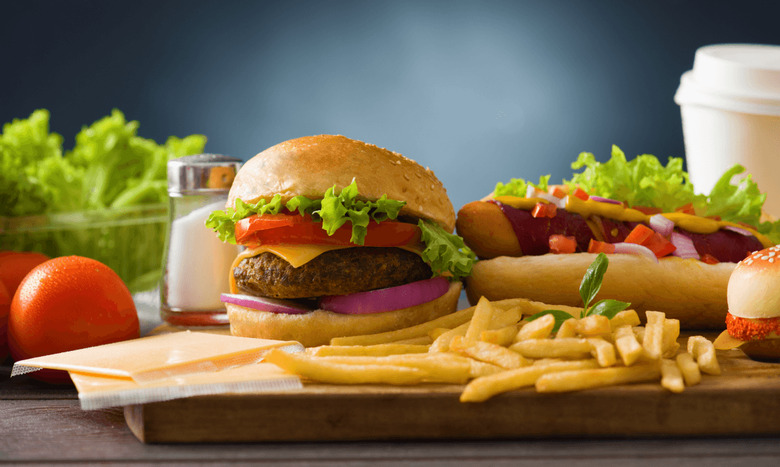No, Soda And Junk Food Really Are To Blame For America's Obesity Epidemic
Last week, researchers from Cornell University published a study indicating that candy, soda, and fast food are not the driving forces of the obesity epidemic in the United States. A frenzy of news reports followed, suggested that the habit of overeating, rather than the content of the food, is to be blamed for Americans' expanding waistbands. While overconsumption of food certainly plays a role in the development of obesity, the claim that the quality of food does not significantly contribute to the disease is misleading.
Click here for the America's Unhealthiest Fast Food Items slideshow.
Doctors have long said that losing weight depends on energy expenditure or, calories in versus calories out. However, in recent years, the question scientists, nutritionists, and even filmmakers have is whether or not all calories are equal. Does it really matter how many calories you burn if most of your intake comes from fatty, greasy foods? The answer is no. Dr. Hyman, director of the Cleveland Clinic Center for Functional Medicine, explains the difference by comparing 750 calories of soda and 750 calories of broccoli.
It is true that, when burned in a laboratory, 750 calories of broccoli and 750 calories of soda will release the same amount of energy. However, those calories interact differently with your biology. When you drink soda, the body quickly absorbs the glucose and fructose, which spikes your blood sugar. This leads to high insulin levels, which sparks a hormonal response in which your body stores visceral — or belly — fat. Excess amounts of this type of fat increase your risk of heart disease, and may even lead to certain cancers.
High insulin levels also increase inflammation, lower your HDL or "good" cholesterol levels, and raise blood pressure. Essentially, 750 calories of soda spurs a negative full-body biochemical reaction. Contrastingly, 750 calories of broccoli will lead to a positive reaction. Due to the high-fiber and low-sugar content of broccoli, these calories will be digested much more slowly than the 750 calories of soda. The sugar in broccoli is very different from the white stuff found in soda, breads, and other processed foods. It does not lead to blood sugar and insulin spikes, but rather contributes to a sustained feeling of satiety.
Given all of this evidence, some of the reports on the new study did not logically interpret the data. While researchers found that normal and overweight people reported eating in fast food restaurants, ordering soda, and eating sweet and salty snacks at the same frequency, the study did not stratify levels of consumption. They did not differentiate between participants who ordered a large soda and those who ordered a small. Researchers did not track what exactly people ordered, or whether they finished the entire serving size. Essentially, the study did not really track how much junk and fast food people ate, but instead how often they ate it.
The lead author, David Just, told Forbes that he did not intend the study's take away to be that sugary drinks, junk food, and fast food have nothing to do with weight. Furthermore, he does not want people to feel that cutting back on sugar is a useless step towards weight loss. The caloric and nutritional content of food is extremely important, especially for those trying to lose weight. While cutting out candy, junk food, and soda may not be enough to achieve your weight loss goal, it is certainly an essential part of the process. Combined with regular exercise, cleaning up your diet not only stimulates weight loss, but also improves overall health and well-being.
The accompanying slideshow is provided by fellow Daily Meal editorial staff member Dan Myers.
